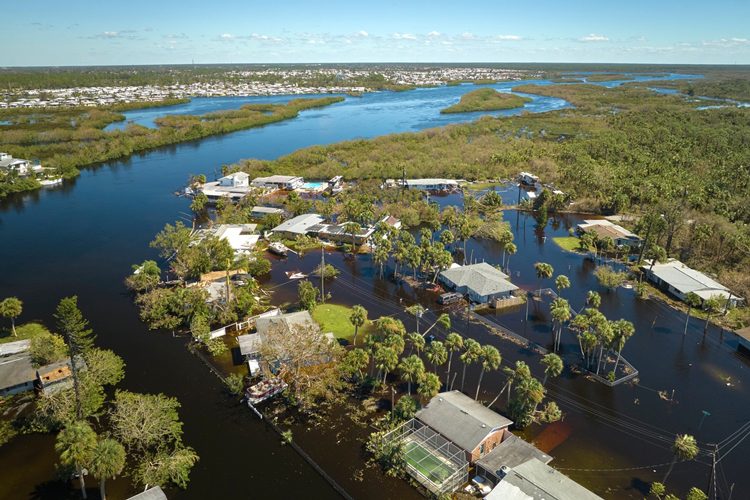Florida, with its beautiful coastlines and tropical climate, is no stranger to hurricanes. While these natural disasters bring devastating winds, torrential rains, and flooding, the aftermath often involves a complex and stressful process of filing insurance claims for hurricane-related damages. Navigating this process in Florida comes with its unique challenges due to the state’s specific regulations and the widespread impact of these storms.
Understanding Florida’s Hurricane Insurance Deductibles
One of the first things Florida homeowners need to know is the concept of hurricane insurance deductibles. Unlike standard deductibles, these are often a percentage of your home’s insured value, ranging from 1% to 5%. For example, if your home is insured for $300,000 and your deductible is 2%, you’ll need to cover $6,000 in damages before your insurance kicks in. This can catch many homeowners off guard, especially when dealing with substantial losses.
The Time-Sensitive Nature of Filing Claims
Florida law imposes strict deadlines for filing hurricane-related claims. Policyholders typically have three years from the date of the storm to file an initial claim. Additionally, insurers are required to acknowledge your claim within 14 days of submission and provide payment or a denial within 90 days unless there are factors beyond their control. Missing these deadlines can result in the denial of your claim, which is why it’s critical to act quickly and document all damages thoroughly.
Common Challenges in Hurricane Damage Claims
Filing a hurricane damage claim in Florida isn’t always straightforward. Some common obstacles include:
Underpaid Claims: Insurers may undervalue the extent of damages, leaving homeowners struggling to cover repair costs.
Denial of Claims: Insurers might deny claims by arguing that the damage was pre-existing or not hurricane-related.
Disputes Over Coverage: Many policies have exclusions for flood damage, leading to confusion about what is and isn’t covered.
Delayed Responses: After a widespread disaster, insurers often face a backlog of claims, resulting in significant delays for homeowners awaiting compensation.
Florida-Specific Protections for Policyholders
Florida law offers unique protections to homeowners facing hurricane damage. For instance, insurance companies are prohibited from non-renewing policies until 90 days after repairs are complete if your home was damaged during a hurricane. This ensures that policyholders have some breathing room while they recover.
Additionally, Florida requires insurers to offer discounts or credits for homes that have hurricane-resistant features, such as storm shutters or impact-resistant windows. If you’ve made these upgrades to your home, it’s worth confirming that they’re reflected in your policy.
Tips for Filing a Successful Hurricane Damage Claim
Document Everything: Take photos and videos of all damages immediately after the storm, and keep receipts for any temporary repairs or accommodations.
Review Your Policy: Familiarize yourself with the terms of your policy, including exclusions and deductibles, to know what’s covered.
File Promptly: Submit your claim as soon as possible to meet Florida’s deadlines and avoid processing delays.
Seek Professional Help: Consider hiring a public adjuster or attorney to negotiate with your insurer and ensure you receive fair compensation.
When to Seek Legal Help
If your claim has been denied, underpaid, or delayed, you don’t have to navigate this process alone. Insurance companies often rely on technicalities or vague policy language to minimize payouts. An experienced attorney can advocate for your rights and help you secure the compensation you deserve.
The Mineo Salcedo Law Firm
For Florida homeowners dealing with hurricane damage claims, The Mineo Salcedo Law Firm provides expert legal guidance and support. Their team specializes in resolving complex insurance disputes, ensuring policyholders are treated fairly and receive the financial relief they need to rebuild their lives. Call 954-463-8100









